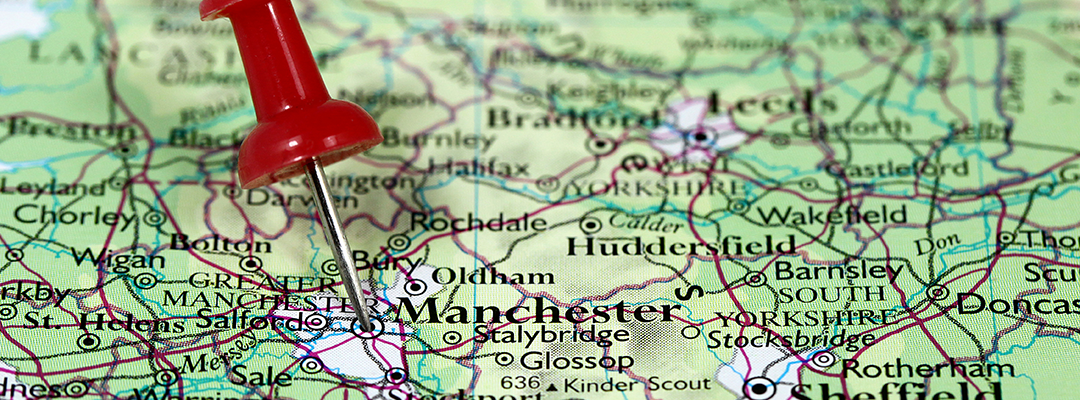A key challenge for this Government is to competently handle the Covid-19 pandemic while not losing sight of the agenda it was elected to pursue.
The 2019 General Election victory was delivered through that historic puncturing of the “Red Wall” where areas that had suffered generations of decline were promised a break from that trajectory. The Government would Get Brexit Done, yes, but also to embark on radical “levelling up” initiative that would offer hope to these communities. To repeat thew 2019 result they need to deliver on this promise.
Last week we saw 40 Conservative MPs reflect the importance of this agenda by coming together to form the “Levelling Up Taskforce”.
The Taskforce
The group, led by former Osborne SpAd Neil O’Brien MP, wants to “champion ideas and boost Britain’s lagging areas”. Its members include some of the new Conservative ‘Red Wall’ 2019 intake but also seasoned parliamentarians such as former PPS to Theresa May Andrew Bowie and Andrew Griffith MP, who worked as a chief business adviser to Boris Johnson prior to the 2019 election.
This coalition of a broad range of MPs illustrates that the levelling up agenda isn’t just supported by those new northern Conservative MPs whose constituencies are set to benefit the most. Instead it has a wider purpose; to unite diverse sections of the party behind the idea that the difference in opportunity and prosperity for people in London and the South East versus the Midlands and the North needs to be addressed.
Their initial foray has been to publish the ‘Measuring Up for Levelling Up’ report. This sets the scene by analysing the stark material difference that exists between the seats that were gained in the 2019 election and the party’s usual heartlands: “Seats gained by the Conservatives in 2019 don’t just have lower earnings than the seats the party already held, but earnings 5% lower than seats held by Labour”.
The report notes that there has been a southerly shift in income and prosperity, especially since the 1970s and deindustrialisation, regardless of efforts to redistribute wealth. These MPs have identified “three key tests” to measure whether the Government are keeping true in action to their ‘levelling up’ mantra. The bottom fifth and bottom half of local authorities” must see:
- A drop in unemployment
- A rise in their employment rates
- An increase in their residents’ earnings
They call for the Government to produce an annual report, set against the backdrop of these three tests to show their progress on the ‘levelling up’ of the country.
Just in time for the Autumn Budget and with not long to go until the Brexit transition period ends, this influential and well-coordinated group of MPs is now exerting pressure from their inception to ensure Number 10 remains committed to this agenda.
Strength in Numbers
More broadly this is another illustration that MPs have learned from the influence that the ERG managed to generate in the last Parliament.
In recent months we have seen:
- The China Research Group – a grouping of Conservative MPs who are extremely cautious about the rise of China and want to directly influence how the UK responds to it. This grouping includes the former Deputy PM Damian Green.
- The ‘Future of Aviation’ Group – bringing together MPs that have constituencies heavily dependent on travel who want to influence Government policy towards the aviation sector, especially in light of the impact of COVID19. This group is led by Crawley MP Henry Smith who has Gatwick Airport in his constituency.
- The ‘Common Sense’ Group – MPs, many representing coastal communities, looking to influence the Government’s response to an increase in refugees crossing the English Channel.
It seems that the Conservative backbenches have concluded that they’re ‘better together’ and will have more influence on No10 as part of these blocs. With the Government’s bandwidth stretched beyond measure during the pandemic, this approach makes sense. Clearly, 40 MPs singing from the same hymn sheet at the same time and gaining traction in the press is more likely to get the Government’s attention than just a few ‘Red Wall’ 2019 intake MPs espousing their views on their Twitter accounts.
We expect that the Levelling Up Taskforce is not the last group of Conservative MPs that we will see emerge over the next few years. What does remain to be seen though is if these new groupings will have as much influence in the coming months as the ERG managed to hold between 2016 to 2018.




